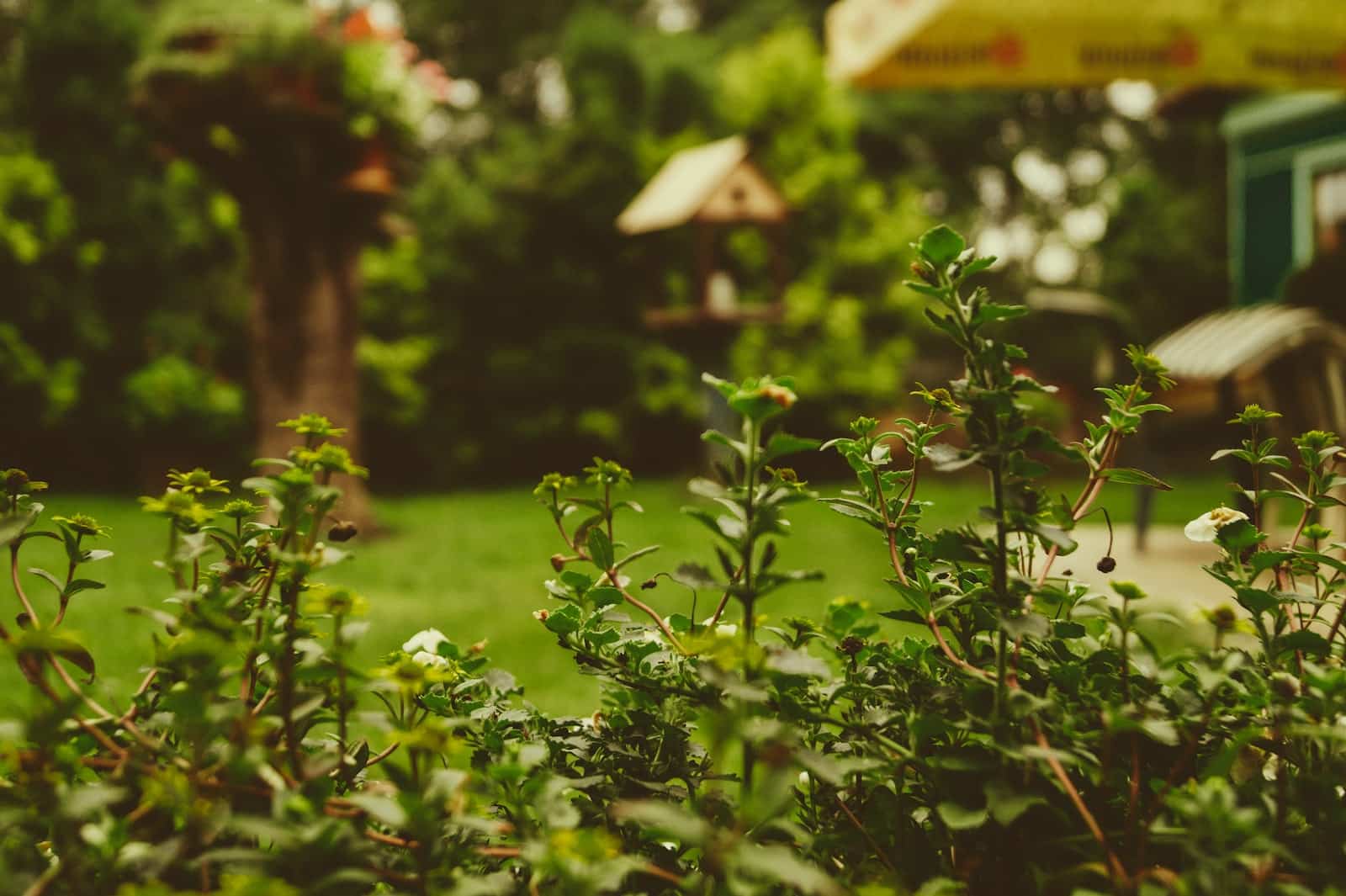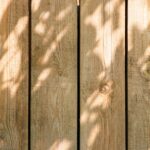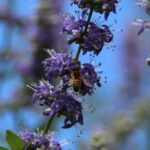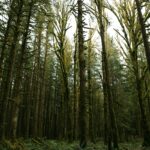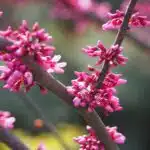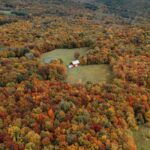Privacy is a precious commodity in our lives, especially when it comes to the backyard. It can be difficult to find the perfect tree that will provide year-round privacy without taking up too much space or blocking any views. Fortunately, there are plenty of options available! From evergreens to deciduous trees, we’ve rounded up the ten best trees for year-round privacy in your backyard.
Creating a backyard oasis of seclusion and security begins with selecting the right trees for your needs. Whether you’re looking for something low maintenance, cold hardy, or just plain attractive, these trees have got you covered. With their dense foliage and tall heights, they’ll shield your yard from prying eyes and help maintain a tranquil atmosphere all year long.
From fast growing evergreens to flowering ornamental trees, this list has something for everyone! Find out which one is best suited to your garden today and start enjoying your own private paradise in no time!
1. What Trees Provide The Best Year-Round Privacy
Finding the right trees for year-round privacy in your backyard can be a challenge. If you’re looking for a way to ensure privacy and still have a beautiful yard, consider these options.
When it comes to trees providing the best year-round privacy, evergreen trees are ideal. Evergreens keep their foliage year-round and can create a natural wall that will block out noise and prying eyes. Some of the best evergreens for creating maximum privacy include Leyland cypress, American arborvitae, and Thuja Green Giant. These varieties can grow up to 40 feet tall, with dense foliage that limits visibility from outside your yard.
If you prefer deciduous trees, there are some great options as well. These types of trees lose their leaves in the wintertime but can still provide plenty of shade during the summer months. Popular choices include red maple, honeylocust, and gingko biloba – all of which can reach heights of 30 feet or more with sufficient care and maintenance.
No matter which type of tree you choose for your backyard privacy needs, there are some key considerations to keep in mind when selecting the right tree for your space. Location is especially important since different species have varying preferences when it comes to sunlight and soil conditions. Additionally, look at the mature size of each tree species before planting so that you’ll know exactly how big they’ll get as they grow over time!
2. Considerations For Choosing Trees For Privacy
Choosing the right trees for year-round privacy in your backyard is like planting a fortress of foliage, shielding you from the eyes of curious passers-by. To make sure you get the best possible results, there are a few considerations to take into account.
First and foremost, consider the location and size of your yard. Depending on that, certain trees may be better suited than others. For example, if you have limited space, evergreen shrubs may be a great choice as they can provide privacy while not taking up much room. On the other hand, if you have a larger area to work with, then taller trees such as cedar or spruce will provide more substantial coverage.
Next up is assessing your needs. Think about how much privacy you’re looking for, whether it’s just screening out occasional glances or providing maximum obscurity from neighbors. You should also consider factors like potential noise reduction or wind blocking abilities that certain species may offer.
TIP: When choosing trees for privacy in your backyard it pays to do some research first and find out what options are available in your area that meet both your needs and local climate conditions. This way you can ensure that all the hard work required to install them won’t be wasted!
3. Pros And Cons Of Evergreen Trees
The trees in our backyard are like a barrier – protecting us from the eyes of outsiders and giving us privacy. Evergreen trees have been a popular option for creating this protective wall, offering year-round dense foliage to block out unwanted sights and sounds. There are pros and cons to consider when choosing evergreen trees for your privacy needs.
To begin, let’s look at the benefits of evergreens. Firstly, they provide year-round coverage – no need to worry about bare branches during winter months or replacing lost foliage in spring and summer. Secondly, they come in a variety of sizes so you can find one that fits your space and needs. Thirdly, they tend to be easy to maintain and won’t require any pruning or trimming after planting. Fourthly, many varieties have attractive shapes and colors that can act as an ornamental feature in the garden. Finally, some species like conifers may be more effective at blocking out noise than other types.
On the other hand, there are a few drawbacks to keep in mind with evergreens. Firstly, many species do not grow quickly so it may take some time before you get that desired level of privacy; secondly, some species like yews can become quite large if not properly maintained; thirdly, these trees require regular watering especially during dry periods; fourthly, they can be expensive depending on the size; finally, some varieties such as cypresses tend to be more susceptible to pests and diseases compared with other tree types.
Taking all these points into account will help you make an informed decision on what type of evergreen tree is best suited for your needs – not just for maximum privacy but also for aesthetic appeal and ease of maintenance. As we move onto looking at deciduous trees next it’s important to remember that each tree type has its own unique characteristics which should be carefully weighed up before making a choice.
4. Pros And Cons Of Deciduous Trees
John and his family wanted to add some privacy to their backyard. With the help of a professional landscaper, they decided the best way to do it was by planting trees. The landscaper suggested they consider both evergreen and deciduous trees for their space.
Deciduous trees are those that lose their leaves in the winter and can provide year-round privacy when planted along a fence line. Many homeowners appreciate them for their beauty as well, since they display vibrant colors during autumn months before shedding their leaves for winter. But there are pros and cons to consider when deciding which type of tree is best for your backyard.
One benefit of deciduous trees is that they tend to be less expensive than evergreen varieties, making them ideal for those on a budget. They also require less maintenance throughout the year since they don’t need pruning or trimming like conifers do. On the other hand, while deciduous trees still provide some shade during winter when they’re leafless, they don’t offer as much coverage as an evergreen would since there aren’t any leaves blocking out light or sound from neighboring homes.
Overall, deciduous trees can be a great choice for adding privacy to your backyard if you’re looking for something more affordable with less upkeep than evergreens. However, you’ll want to keep in mind that you won’t get as much coverage from these types of trees during the winter months compared to conifers. Next we’ll take a look at fast growing trees that can provide quick results without sacrificing aesthetics or quality of life in your outdoor space.
5. Fast Growing Trees For Privacy
When it comes to privacy, one might think that fast-growing trees lack the staying power to provide lasting cover. However, when chosen correctly, certain fast-growing trees can be just as effective in creating a private backyard oasis as their slower-growing counterparts.
For those seeking to quickly establish a sense of seclusion and security, there are several varieties of tall and bushy trees that can be planted in any backyard. Cypress trees, such as Leyland cypress or Arizona cypress, can reach heights of 40 feet with a width of 15 feet in just 10 years. Thuja Green Giants are another excellent choice for quick coverage with an ability to grow 3-5 feet per year and reach heights of up to 50 feet.
For those looking for a more decorative yet still swift growing tree, black cherry laurel is an attractive option with its glossy green leaves and fragrant white flowers. It grows at a rate of 4-6 feet each year and is capable of reaching heights of 20-30 feet while providing plenty of foliage for privacy.
These fast-growing trees offer efficient solutions for homeowners wanting the benefits of privacy without having to wait too long or worry about overgrown branches blocking windows or walkways.
6. Small Trees For Limited Space
Tired of nosy neighbors? Worried about your ever-shrinking backyard? Well, worry no more! We’ve got the perfect solution for all your privacy woes: small trees! Yes, that’s right – you don’t need a big garden to enjoy some peace and quiet. Here are just a few of our favorite small trees for limited space:
• Japanese Maple – This ornamental tree is ideal for small yards, as it grows to an average height of 10-25 feet. It’s also popular for its attractive foliage and fragrant flowers.
• Dogwood – This flowering tree offers not only beautiful blooms but also year-round interest with its red berries and colorful leaves. Plus, it won’t take up too much space as it typically grows between 15-30 feet tall.
• Japanese Rootstock – For those looking for an even smaller option, this dwarf tree can reach heights of just 8-10 feet in maturity. It’s great for containers or tight spaces.
• Dwarf Cherry – This lovely little tree blooms in springtime with delicate white flowers and produces edible fruit in the summer months. It reaches a maximum height of 15 feet when fully grown.
• Amur Maple – Last but not least is the Amur Maple – a compact option that makes a wonderful addition to any landscape. It peaks at around 20 feet tall and boasts vibrant yellow foliage during the autumn months.
So there you have it – five small trees to help keep your backyard private while adding beauty and visual interest to your landscape! And while you’re at it, why not make sure they smell nice too? Stay tuned for the next section on fragrant trees for privacy!
7. Fragrant Trees For Privacy
Who says privacy has to come without a pleasant aroma? Look no further than fragrant trees for your backyard oasis! For those of us who don’t have the luxury of space, say goodbye to sacrificing that perfect blend of scents and seclusion. Now, you can have your cake and smell it too!
Take a whiff of these delightful options for privacy-enhancing trees. Looking for something sweet? Try the star magnolia which emits an intoxicating scent in the springtime. Or how about something citrusy? The evergreen lemon cypress tree produces a refreshingly tangy aroma all year round.
No matter what fragrance you prefer, there’s sure to be one that’ll add a little extra charm to your backyard escape. Plus, many of these aromatic plants are easy to care for – so you can enjoy their beautiful scent without having to worry about upkeep. So go ahead and get a whiff of these fragrant trees – your nose will thank you!
8. Low Maintenance Trees For Privacy
Creating a privacy-filled backyard oasis can be an overwhelming task. It’s like putting together a giant jigsaw puzzle, except you have to wait months or even years for the finished product. Fortunately, low maintenance trees are the perfect pieces to complete your green masterpiece.
To help you find your ideal tree, let’s take a look at some of the best low maintenance options out there. Whether you’re looking for something tall and slim or wide and bushy, there’s sure to be a tree that perfectly fits your backyard and lifestyle needs.
For starters, evergreens such as arborvitae and cypress are great choices for those seeking year-round coverage without the hassle of yearly pruning. These hardy trees require minimal effort to maintain their lush foliage – just give them some water and sunlight every now and then! Plus, their aroma is sure to add an extra layer of serenity to your outdoor paradise.
No matter what kind of tree you’re looking for, there’s a low maintenance option that will bring beauty and privacy to your yard in no time at all. With these options in mind, creating a peaceful escape from the hustle and bustle has never been easier!
9. Flowering Trees For Privacy
Unbelievably, there are trees out there that can provide both privacy and beauty! Flowering trees could be the perfect solution for your backyard if you’re looking to create a secluded and tranquil atmosphere while also adding a stunning display of colour throughout the year. So, what are some of the best flowering trees for privacy?
First up is the Dogwood Tree. This tree is an excellent choice as it grows quickly and produces beautiful white or pink blooms in April or May, as well as bright red berries in autumn. Plus, this tree provides medium-level privacy so you can still keep an eye on your kids playing in the yard.
Next comes the Japanese Maple which is perfect for those who want more low-level privacy. This tree has deep purple leaves that change to a brilliant red colour in autumn and requires minimal maintenance throughout the year. Additionally, it only grows to around 20 feet tall so won’t take up too much space in your garden.
The last option we recommend is Magnolia Tree – known for its fragrant flowers which bloom from late winter through to early spring. The foliage on this tree is also quite dense making it a great choice for areas where more substantial screening is required.
Thanks to these three blooming beauties, you don’t have to choose between having a private backyard and enjoying an array of colourful flowers! With just a little bit of research, you’ll be able to find the perfect flowering tree that meets both your aesthetic and practical needs – without sacrificing any of either! From here, let’s move onto shade trees for privacy…
10. Shade Trees For Privacy
If you want to keep your backyard private all year round, shade trees are a great choice. They offer a reliable source of privacy and seclusion without having to sacrifice your garden’s aesthetics. But which shade trees should you choose? Fortunately, there are several options available for those looking for the perfect tree to provide extra privacy in their backyard.
When it comes to selecting the best shade tree for your yard, you’ll want to consider factors such as height, width and foliage. You may be looking for something tall and dense with broad leaves that will block out the sun in summertime or evergreen trees that provide year-round coverage. Whatever your preference may be, there is sure to be a tree that will fit both your needs and budget.
Some of the most popular choices include Japanese maple trees, Dracaena fragrans (corn plants), and White Cedar (Thuja occidentalis). Japanese maple trees have beautiful foliage that provides an effective barrier against prying eyes while also providing an attractive aesthetic in any garden setting. The Dracaena fragrans has lush green leaves that work well as a windbreak or as an additional layer of privacy when planted alongside other shrubs or hedges. Finally, White Cedar is an evergreen with thick foliage perfect for providing year-round protection from onlookers without sacrificing style or beauty.
No matter which type of shade tree you choose for your backyard, it’s important to consider its growth rate and how much maintenance it requires before making a purchase decision. With so many great options available, you’re sure to find the perfect tree for creating extra privacy in your backyard!
11. Shrub Trees For Privacy
Shrub trees are an excellent and often understated way to provide privacy in your backyard. With their low maintenance requirements and fast-growing nature, shrub trees can be a great choice for quickly creating a private space. Although they don’t reach the same heights as traditional shade trees, shrubs can still offer significant coverage and protection from prying eyes.
When choosing shrub trees for your backyard privacy needs, it’s important to consider your climate and soil type. Certain species of shrub trees may not thrive in certain areas, so researching varieties that will do well in your local environment is key to success. Once you’ve identified what species works best for you, there are several other factors to consider such as growth rate, mature height and width, and evergreen or deciduous characteristics.
If you want an easy way to add additional privacy to your yard without having to wait years for a tall tree canopy to develop, then look no further than shrub trees! With careful planning and selection of the right species for your climate, you can have an effective screen of foliage in no time at all! Now onto hedgerows – another great option for maximum privacy!
12. Hedgerows For Maximum Privacy
When it comes to creating a private oasis in your backyard, hedgerows are top of the list. Like a wall of green, they provide maximum privacy and can completely transform an outdoor area. Here’s why hedgerows should be your go-to for year-round privacy:
• They block out prying eyes and unwanted noises
• They create a safe haven that is perfect for relaxing and entertaining
• They can be grown in all shapes and sizes, depending on your needs
• You can choose from evergreen varieties to add colour to your garden even in winter
• They are relatively low maintenance once established
With so many benefits, it’s no wonder why hedgerows have become one of the most popular choices for privacy in backyards. Not only do they look great but they also offer much needed protection from the outside world. Plus, you don’t need to worry about constantly pruning like with trees – once planted, these hardy plants will be able to thrive with minimal effort.
Planting and caring for privacy trees is the next step in creating a secluded space that you can enjoy all year round. With the right planning and preparation, you will be able to enjoy your own little paradise in no time at all!
13. Planting And Caring For Privacy Trees
Planting and caring for privacy trees is a great way to ensure year-round privacy in your backyard. With the right selection of trees, you can create a natural wall of greenery that will protect you from nosy neighbors and passersby. It’s like having your own fortress of solitude – without all the daunting stone walls!
Creating a privacy screen with trees is no easy task, however. You’ll need to select the right types of trees and shrubs for your climate, soil type, and size of area. You’ll also need to pay close attention to pruning and maintenance over the years to ensure that your trees stay healthy – and are providing you with the necessary amount of privacy you desire.
To get started on your own private oasis, it’s best to consult a professional landscaper or arborist who can help recommend the best kinds of trees for your particular environment. They can also provide helpful advice on how and when to prune your new plants so they’ll reach their full potential while giving you the maximum level of protection from prying eyes. With the right guidance, you’ll be able to have an oasis that offers both beauty and seclusion all year long!
14. Creative Ways To Use Trees For Privacy
When it comes to achieving year-round privacy in your backyard, there are a variety of creative ways to use trees. Beyond simply planting and caring for privacy trees, these can include using shrubs, hedges and even vines. Here’s a look at four key ways you can maximize the natural beauty of your outdoor space while adding much needed privacy:
- Plant Fast Growing Trees: Planting fast growing trees is one of the easiest ways to add privacy to your backyard quickly. By quickly growing deciduous or evergreen trees with dense foliage like Leyland Cypress, Thuja Green Giant or Japanese Cedar, you’ll be able to enjoy more seclusion sooner.
- Create Flowering Tree Screens: Blending in with the rest of your garden and bringing added color to your yard, flowering tree screens are an excellent way to add both a visual and physical barrier against prying eyes. Options such as dogwoods, magnolias, cherry blossom trees and crepe myrtles make for lovely additions that help ensure your yard maintains its aesthetic appeal.
- Grow Vines on Trellises: Growing vines on trellises is an attractive way of adding height and additional privacy to your backyard without sacrificing too much ground space. By installing a few trellises around your perimeter you can easily grow vines like climbing roses or clematis that will give you extra coverage while keeping up appearances.
- Develop Hedgerows: Hedgerows are another great way to increase privacy in any yard without taking away from its natural beauty. Taller varieties such as yews or boxwood create barriers between neighboring yards while shorter options like barberry bushes help define property lines without becoming overwhelmingly thick or tall.
No matter which methods you choose, it’s important to consider what type of trees best suit both your climate and location when it comes time to find the right ones for providing year-round privacy in your backyard – something we’ll explore further in our next section about resources for finding the right trees for privacy…
15. Resources For Finding The Right Trees For Privacy
When it comes to creating a private space in your backyard, trees are an excellent option. Just look at the example of the Nelsons. This family wanted to create more privacy in their backyard, so they decided to plant a few tall trees along the perimeter. After a couple of years, they had succeeded in transforming their backyard into their own private oasis.
However, choosing the right type of tree for your yard is key. Trees that are too short won’t provide enough privacy and those that are too wide may block out sunlight. That’s why it’s important to find resources that can help you decide which trees will work best for your needs.
Fortunately, there are plenty of websites and experts available who can help you determine which trees will give you the best year-round privacy in your backyard. Many websites offer detailed information about the size and characteristics of different types of trees, enabling homeowners to make informed decisions about which ones will provide the most benefit for their property. Additionally, local arborists or landscapers can offer personalized advice based on your specific needs and geographic location.
No matter what type of tree you choose for your backyard privacy needs, it’s essential to do some research first so you get just the right one for your home environment. With a little effort, you’ll be able to create a peaceful outdoor space that offers both beauty and seclusion!
Frequently Asked Questions
How Long Does It Take For A Privacy Tree To Reach Its Full Height?
When it comes to year-round privacy in your backyard, trees are an ideal choice. But how long does it take for a privacy tree to reach its full height? With some species of trees, you can get the desired level of privacy in as little as two years!
In fact, some evergreen varieties such as arborvitae and juniper can reach up to 20 feet in height after just three years of growth. Other trees like pine and spruce may take a bit longer, but still reach their full potential within five years. That’s much faster than the decades it takes most deciduous trees.
No matter what type of tree you choose, patience is key when it comes to growing a tall, lush tree for your backyard privacy needs. Regular maintenance and care will help ensure that your tree grows quickly and looks its best for many years to come. With the right selection and care, you’ll soon be enjoying the calming effects of natural beauty and increased privacy right outside your door!
How Far Apart Should Privacy Trees Be Planted?
It’s almost unbelievable how important it is to plant privacy trees the right distance apart! We can’t stress enough how paramount it is to make sure these trees are planted in just the right way. It’s an absolute must if you want them to provide maximum privacy year-round.
So, when you’re planning your backyard oasis, what’s the best answer to the question: “How far apart should I plant my privacy trees?” The truth is that it depends on a few factors. If you choose fast-growing trees like Leyland Cypress or Thuja Green Giants, for example, you should space them at least 6 feet apart so they don’t overcrowd each other as they grow. On the other hand, slower growing species such as Japanese Cedar and Arborvitae should be spaced 4 feet apart.
You might also consider alternating different species of tree for extra visual interest while still providing plenty of coverage. Whatever you decide to do, making sure your privacy trees are planted with enough space between them will ensure that they reach their full height and remain healthy for years to come!
How Much Space Do I Need For A Privacy Hedge?
Creating a privacy hedge in your backyard can be an exciting and rewarding experience. The first step is to ensure you have the necessary space for it. That’s why it’s important to ask: how much space do I need for a privacy hedge?
The answer will depend on the type of trees or shrubs you choose for your hedge, as well as their mature size. To get an accurate idea of how much space you’ll need, consider these three factors:
- •Size of Trees or Shrubs: When choosing trees or shrubs for your privacy hedge, make sure to pick ones that won’t outgrow their available space. This is especially important if you have limited space in your backyard.
- •Shape of Trees or Shrubs: Remember that trees and shrubs come in different shapes and sizes. Choose ones that won’t need too much pruning or trimming once they reach maturity.
- •Distance Between Trees or Shrubs: You’ll also need to decide how far apart each tree or shrub should be planted so they can grow without crowding each other out. Generally speaking, larger trees should be spaced further apart than shorter shrubs.
When planning out your privacy hedge, take some time to research the types of trees and shrubs that best suit your needs and environmental conditions. There are many options available, from evergreen conifers to flowering shrubs – so you’re sure to find something that works for you! Plus, having a clear understanding of how much space you’ll need will help ensure a successful planting process and long-term success with your new privacy hedge.
Do Privacy Trees Require Regular Pruning?
Figurative language is often used to convey a deeper meaning, with privacy trees being no exception. They may appear as an impenetrable fortress of foliage, but the question remains: do these trees require regular pruning?
The answer is that it depends. Depending on the type of tree you choose and the scope of your project, some trees may need more frequent pruning than others. Fast-growing trees such as Leyland cypress or Thuja Green Giant are great for creating a fast-growing privacy hedge, but they will need frequent trimming to maintain their shape and size. Deciduous trees such as red maples and oaks are also good choices for providing year-round privacy and can tolerate more aggressive pruning if needed.
For all types of privacy trees, it’s important to keep in mind that regular maintenance is essential for them to remain healthy and provide adequate coverage. Prune dead branches regularly throughout the year, making sure not to cut back too much at once. With proper care and attention, your backyard can become a secluded haven with a beautiful wall of greenery!
Are There Any Native Plants That Can Be Used For Privacy?
If you’re looking for a natural way to create a little extra privacy in your backyard, native plants may be the answer! While they won’t offer the same level of privacy as larger trees, there are plenty of native options that can create just enough of a barrier to make you feel more comfortable. Like an oasis in the desert, these plants can bring life and beauty to your outdoor space while protecting you from prying eyes.
When it comes to finding the right native plants for privacy, there are many factors to consider. Not only do they need to be able to fit into your yard and add visual appeal, but they should also be hardy enough to withstand the elements in your climate. Some popular natives include evergreens like holly, rhododendrons, and yews; deciduous plants such as maples and dogwoods; and flowering shrubs like azaleas, hydrangeas, and viburnums.
No matter which type of plant you choose for your backyard privacy project, there’s one simple rule: Plant selection is key. You’ll want to make sure that whatever you choose is suited for your climate and soil conditions and will thrive in its new home. With careful consideration and a bit of research on local species, you’re sure to find the perfect native plant – or combination thereof – that will provide just the right amount of year-round privacy!
Conclusion
In conclusion, it is clear that trees can offer a great deal of privacy for your backyard. From the selection of native plants to the tall evergreens, there are many options available for you to choose from. However, as with any landscaping project, it is important to carefully consider all aspects before making your decision. It takes time and effort to properly plant and maintain a privacy tree. Additionally, consideration must be taken when deciding how much space is needed and how far apart the trees should be planted.
The irony in this situation is that while we seek solitude and privacy in our backyards, many of us don’t take the necessary steps to ensure that we are truly hidden away. We may think that just planting some trees will create a private oasis, but in reality it can be quite difficult to achieve true seclusion without proper planning and maintenance.
So if you want year-round privacy in your backyard, make sure you are taking into account all of the factors discussed here before making any decisions. With careful planning and regular pruning, you can create an oasis where you can relax and enjoy some peace and quiet without worrying about prying eyes or nosy neighbors.

